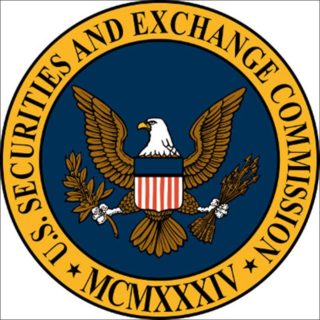
One of the signature features of the Dodd-Frank Act was its creation of the SEC whistleblower program, which includes the possibility for whistleblowers to receive generous bounties. The program has grown substantially since its inception. However, there are signs that the program may be undergoing a significant change in direction, as the SEC is “denying a record percentage of whistleblower claims,” according to a July 22, 2025, Bloomberg article, here. According to the article, the recent number of denials suggests that “the agency is enforcing rules and scrutinizing claims more strictly than in past years.”Continue Reading SEC Rejects Record Percentage of Whistleblower Award Claims


 In a June 4, 2020 press release (
In a June 4, 2020 press release ( In the largest such award so far this year, the SEC has awarded more than $27 million to a whistleblower, an award amount that the Commission increased above staff recommendations in recognition that the whistleblower had “repeatedly and tenaciously” voiced his concerns about the misconduct within his organization before reporting it to the agency. As discussed below, there are a number of noteworthy features about this award. The Commission’s April 16, 2020 order about the award can be found
In the largest such award so far this year, the SEC has awarded more than $27 million to a whistleblower, an award amount that the Commission increased above staff recommendations in recognition that the whistleblower had “repeatedly and tenaciously” voiced his concerns about the misconduct within his organization before reporting it to the agency. As discussed below, there are a number of noteworthy features about this award. The Commission’s April 16, 2020 order about the award can be found  The U.S. Supreme Court ruled on February 21, 2018 that the Dodd-Frank Act’s anti-retaliation provisions protect only whistleblowers that make a report to the SEC, and do not apply to whistleblowers who report internally. The Court’s ruling, which resolved a circuit split on the question of who was entitled to the Act’s provisions, will significant limit the scope of the anti-retaliation protections. The Court’s February 21, 2018 opinion in Digital Realty Trust, Inc. v. Somers can be found
The U.S. Supreme Court ruled on February 21, 2018 that the Dodd-Frank Act’s anti-retaliation provisions protect only whistleblowers that make a report to the SEC, and do not apply to whistleblowers who report internally. The Court’s ruling, which resolved a circuit split on the question of who was entitled to the Act’s provisions, will significant limit the scope of the anti-retaliation protections. The Court’s February 21, 2018 opinion in Digital Realty Trust, Inc. v. Somers can be found  In the flurry of opinions and orders on Monday on the final day of the U.S. Supreme Court’s term, and amid the hubbub over
In the flurry of opinions and orders on Monday on the final day of the U.S. Supreme Court’s term, and amid the hubbub over  In a
In a  One of the Trump administration’s high profile initiatives is the
One of the Trump administration’s high profile initiatives is the  Prior to the U.S. Supreme Court’s
Prior to the U.S. Supreme Court’s 
